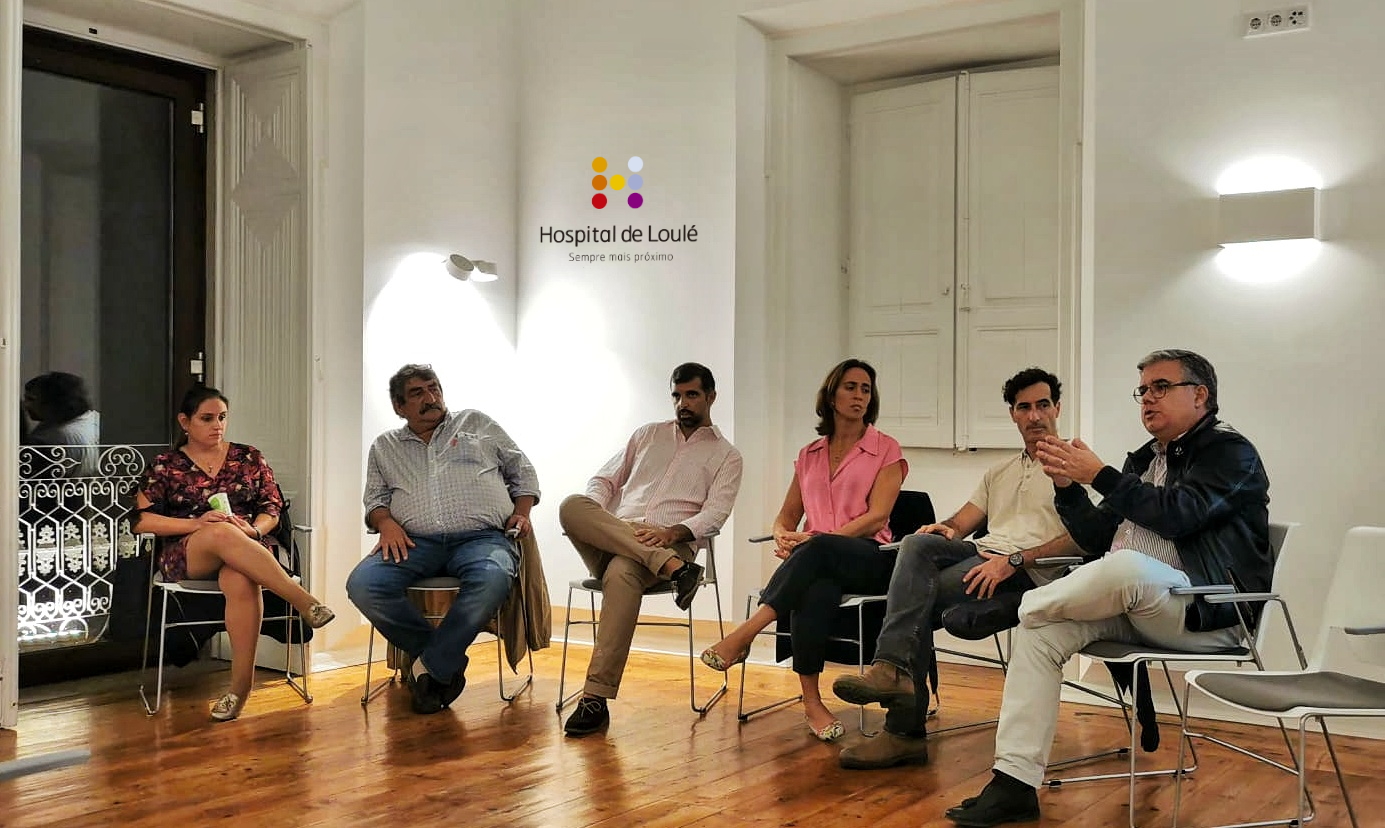Oct. 27, 2022
Hospital de Loulé offers Breast Unit with Multidisciplinary Breast Cancer Consultation
Hospital de Loulé publicly presented this Wednesday, in Loulé, the Multidisciplinary Breast Cancer Consultation - Breast Unit, in a gathering that brought together several specialist doctors who are part of this new unit.
Hospital de Loulé publicly presented this Wednesday, in Loulé, the Multidisciplinary Breast Cancer Consultation - Breast Unit, in a gathering that brought together several specialist doctors who are part of this new unit.
The initiative marked the World Breast Cancer Day with an open and frank conversation about this pathology and where the importance of this multidisciplinary approach that brings together several specialties - senology, oncology, plastic surgery, imaging, radio-oncology, pathological anatomy, psychology , nutrition and physiotherapy – creating the possibility of jointly defining the patient's therapeutic approach.
.
The referral to this unit begins with a consultation in Senology - the branch of Medicine that diagnoses, studies and treats breast diseases - then moves on to a group and individualized approach to the patient in search of the most appropriate treatment for each specific case.
The multidisciplinary approach seeks not only to cure, but also to minimize the causes that may have led to the onset of the disease, as well as to change some life habits and contribute to reducing risk factors that lead to the appearance of this and other pathologies, adopting a healthier lifestyle.
Senology, Medical Oncology, Radio-Oncology and Imaging were represented on the Tertúlia-Rosa panel and in a question and answer session, the first message was directed towards prevention, namely the importance of palpation performed by women and the imaging screening.
The increase in the appearance of breast cancer in younger women highlights the importance of generating the “habit of self-examination at young ages”, highlighted by the head of the Oncology unit at Hospital de Loulé.
“Self-palpation performed on a regular basis remains the most effective form of early detection. If there is this regular palpation, you start to see knowledge of the breast and the easy detection of any change”, pointed out Raquel Dionísio.
The specialist in Imaging, Jorge Pereira, took on the need to “make pedagogy” for young people, “simplifying the message” stressing that “many do not know how to take the exam” and others “are afraid of self-palpation because they do not know the breast and detecting structures they fear might be tumors.
One of the points in consensus on the panel is the fact that patients are “increasingly informed”, so it is important to “establish a good connection and conversation” between the various doctors, including family doctors, said Senologist Henrique Morais.
Recent advances in oncological treatments were another issue highlighted, as they allow us to face breast cancer as “a chronic disease with the possibility of maintaining quality of life”, pointed out Raquel Dionísio.
Senologist Vera Ribeiro warned of something that she claimed to be in the “essence of women” - “taking care of others” - and that often leads to “putting aside care for yourself” what can later “ lead to disease.”
“We have to break these habits and take care of ourselves and this often leads to the adoption of healthier habits of eating and physical exercise in the family, factors that we know are essential in the prevention of any pathology”, she highlighted.
António Lagoa, also a senologist, recalled the importance of screening actions in women between the ages of 45 and 70, as they allow “complementing self-exams” and the comparison of the various exams carried out over time, allowing an “early detection of alterations”. in breast structures.
He pointed out, however, that the start date of imaging screening should be “tailored to each woman depending on her personal and family background.”
Senology consultations are available in several units of the Hospital de Loulé group and can be booked through the Hospital de Loulé page.

